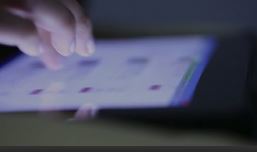News10NBC Investigates: The dangers of deepfakes

(WHEC file photo)
ROCHESTER, N.Y. – If you watched News10NBC Thursday, you saw us use artificial intelligence to clone the voice of chief investigative reporter Berkeley Brean.
If you didn’t know it was a clone, you would have thought it was actually him.
And the deepfake got a real reaction that we want to share with you.
“My reaction was, ‘I’m glad this is getting attention in somewhere other than Los Angeles and New York,'” Tim Powers said.
MORE: News10NBC Investigates: Here’s what happened when we did a deep fake on Berkeley Brean’s voice
He is a voice actor. In the pandemic, he moved from L.A. to Fairport.
He watched Brean’s story with University of Rochester graduate student Neil Zhang, who won a national grant to continue his work on technology to identify what’s called audio deepfakes.
“And I thought, ”Oh, thank heavens people are developing counter technology to be able to see what’s really going on,'” Powers said.
Here’s an example. Powers was offered a deal from a streaming service “where for $3,000 you would record samples of your voice for the specific purpose of being cloned: $3,000 lock, stock and barrel,” he said. “And then every time your cloned voice is used in a commercial, you got 10 whole dollars. Ten whole dollars. Now, here’s the thing. This is my entire livelihood.”
Berkeley Brean, News10NBC: “That’s every time the commercial aired, right?”
Tim Powers, voice actor: “No no no. That’s one time for its production. And once it’s produced, it can run forever. And I get 10 bucks.”
Brean: “One time.”
Powers: “One time.”
That’s one reason why his SAG-AFTRA union went on strike.
“That technology is out there, man, and it’s eating away at my career and it’s coming for your personal privacy,” Powers said.
And it isn’t just a Hollywood problem.
“Think of all the things verified by voice. My bank calls me to make sure this check is valid. There’s my voice,” Powers said.
Zhang won a national grant to develop technology to decipher audio fakes.
Zhang: “They might steal your money. They might do kidnapping. So they can do many crimes with your voice, with your fake voice.”
Brean: “So your work is to try to identify that fake.”
Zhang: “Yes.'”
Powers said the work Zhang is doing is really important.
“Most people don’t even know it exists in the first place but being able to identify it will help determine what is truth and what is misinformation,” he said.